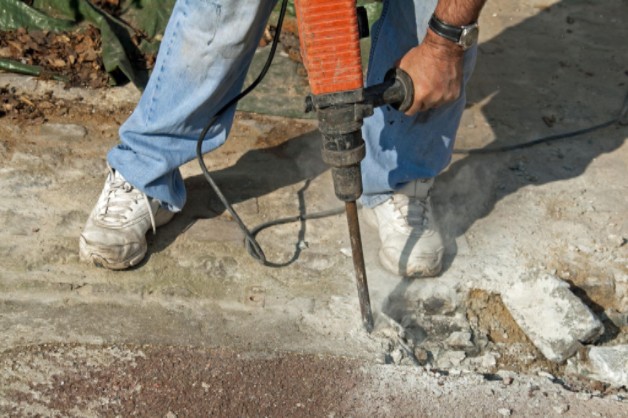
According to the Centers for Disease Control & Prevention, occupational hearing loss is the number one workplace injury in America.
Every year, an estimated 22 million workers are exposed to damaging levels of noise. As a result, $242 million is spent on workers’ compensation annually for hearing loss disability.
Any place of employment is subject to occupational noise that could lead to hearing loss, but the most common industries include construction, manufacturing, and mining.
The National Institute for Occupational Safety and Health (NIOSH) recommends that any worker who is exposed to more than 85 decibels for 8 hours or more a day should always wear hearing protection such as earplugs. If a working environment exceeds 100 decibels, two forms of hearing protection should be worn such as plugs and earmuffs.
The risk of potential hearing loss in the workplace depends on the following factors:
- Level – The risk of hearing loss increases as noise level increases.
- Duration – The longer the noise level lasts, the more potential risk of hearing loss.
- Intermittency – Is there a break at all between noise levels?
- Impulsiveness – Constant noise is actually less dangerous than noises that stop and start such as jackhammers, fireworks, or gunfire.
Warning signs of hearing loss are as follows:
- You experience a fullness feeling in your ears.
- You have a hard time understanding what people are saying.
- You hear a ringing sound in your ear.
Here’s how to protect your hearing in the workplace:
- Always wear protective ear wear.
- If you work in an at-risk occupation, check with your employer to make sure that your jobsite has an effective program to adequately protect your hearing and meets federal or state regulations.
- Protect your hearing even at home while listening to music, watching TV, or other activities. Invest in higher quality earphones that block excess noise levels.
- See an ear doctor (also called an otolaryngologist) regarding your hearing on an annual basis.
If you feel you’re having difficulty hearing properly, you should seek a medical professional’s opinion and speak with your place of employment regarding noises that may be affecting your hearing.